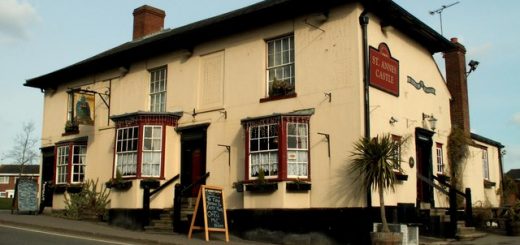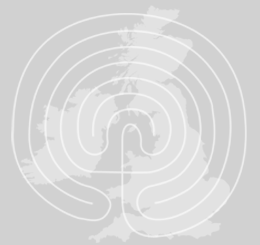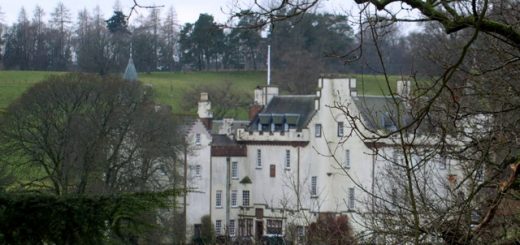Do groups help or hinder paranormal research?
What do people here think about paranormal research groups? Do they help or hinder the chances of scientific progress and understanding of the paranormal?
What do people here think about paranormal research groups? Do they help or hinder the chances of scientific progress and understanding of the paranormal?




Do groups help or hinder paranormal research?
Surely this depends upon the group of investigators and how they approach the subject. If they just keep repeating the same old Victorian parlour tricks that have failed to progess the field for the last 100 years or so then they probably won’t advance the field any further or make any ground breaking discoveries. But do they hinder the subject? Not sure.
Some research groups are good and I’m sure they have a valuable part to play investigating cases, but surely groups are more effective when they are linked under a larger umbrella or association, where they can learn from each other and compile their findings.
Do groups help or hinder paranormal research?
I agree. One issue though is that many groups form because people hold the same beliefs in the first place. These beliefs may not actually be true – and all the group does is reinforce them. Is this a good thing?
I can see potential here for confusion to be propogated via the group mentality. In this sense the group may actually prevent an individuals development and the whole groups ability to carry-out objective scientific research.
Do groups help or hinder paranormal research?
I cannot disagree with the above, but, the opposite could also be true. The beliefs or approach of the group could be true or appropriate to the field they are reseaching and as a group of like minded individuals they may make progress and flourish.
What I think we find in the paranormal ar groups of investigators who take a scientific approach and then groups of thrill seekers who like to think of themselves as investigators (and no I will not point fingers). I have lost count of the amount of people who have joined the group I am generally associated with only to leave when they realise how boring a vigil can be (and usually is) and they are not likely to see a ghost, no matter how much they want to or believe.
Do groups help or hinder paranormal research?
What’s the alternative – investigating on your own? That’s not advisable as you can’t check if you are experiencing a hallucination – nobody to check with. There are also possible health and safety issues.
Do groups help or hinder paranormal research?
Another thought about groups and investigators in general. None of us are regulated by an official body. You have an experience, possibly traumatic, call someone in and…well, it could be anyone with a notion to see a ghost, qualified or not.
Do groups help or hinder paranormal research?
There are many alternatives and I think you slightly misunderstand what I meant by group. When i said groups – I mean of the organised ghost-hunting variety (etc) – where most people already agree on what they are doing and why (theory-loaded approaches).
Now – I dont need a group to read a journal article, or indeed to write one. I dont need a group to read a book. I dont need a group to think critically and logically about information or even to devise an experiment.
I agree that in the field, one might need collaborators – by that in no way means you have to form a group, give yourself a name, website and orb collection.
One does not follow from the other – so there are aternatives.
Do groups help or hinder paranormal research?
I know what you mean Ophiel.
Paranormal group websites are a bit repetitive aren’t they: pictures of graveyards, bizarre articles about EMF meters and how many kinds of ghost there are plus those priceless photos of the main members, taken in infra-red! I love reading the biogs. There is often a formula to them: ‘I’m just a normal person, not trying to prove anything ….’
Of course, not ALL groups are like that …
Do groups help or hinder paranormal research?
I totally agree with you. This now raises the interesting question of how a newbie – or anyone else for that matter could tell the difference?
I do not think that a group is necessarily a bad thing – but my experience is that more often than not, they are (yes there are exceptions).
This is probably a very
This is probably a very unpopular viewpoint, but the problem with a lot of groups is a lack of even basic scientific training. UFO research is a good analogy; too many untrained people in research groups report common astronomical or meteorological phenomena as UFOs. I give research groups top marks for enthusiasm, but without some form of scientific training, they are no more “researchers” than I (with a physics background) am a brain surgeon.
Brian
Agreement
I have to agree with you there B Straight. There does seem to be the notion that anyone can get involved in research, which I totally agree with, regardless of experience or qualifications. But there has to be a certain level of reality. If you expect to come up with scientifically accepted results, then your approach must be scientific and you should have a sound hypothesis and a good experimental design. We can’t expect everyone to be experts in every field but I would advise anyone wanting to get involved to hit the good books and do a lot of research before heading out into the field. Also, try to get some consultants in fields where your group is weeak, who are willing to help and discuss your results/findings.
Hi just reading through your
Hi just reading through your comments on paranormal groups.
I started a team in 2004, there are only 4 of us and we all come from different walks of life. We also have different thoughts on cause and effect. Although none of us even after nearly 5 years could say that we have witnessed a paranormal event.
We have of course had strange things happen, things that can be explained by natural phenomena and others that can not.
We do however offer all our reports for peer review and forward anything we have found interesting onto experts in the field.
We don’t claim to be anything other than what we are, a team of friends who investigate reported and non reported venues for paranormal activity.
We have turned down private residences, after initial visits to find that owners have recently had deaths in the family and are looking for someone to tell them that their loved ones are there for them and are still around. That isn’t our "bag" so to speak yet their our plenty of groups out there that would "cash in" on something like this.
We don’t do what we do for gain or fame – far from it.
Sounds like a good balanced
Sounds like a good balanced group Kim 🙂
For the last few years I’ve found people who have very keen to get involved and join a group, only to become disillusioned when they don’t see a ghost, have to spend time interviewing and doing historical research. It’s almost as if they just want the thrill of an overnight investigation without putting in the background work. It makes me wonder with all these new groups beng created how long they will survive.
We have seen so many pop up,
We have seen so many pop up, stay a few months and then disappear.
Most are in it for the price of a ticket, this has never interested us.
When we first began we found it difficult to gain entry to larger venues and found ourselves taking guests to pay for the venue. However this didn’t work for us, investigating took a back seat as we were running around looking after guests.
So from that time we decided it would be just us 4.
We enjoy the research and interviews it’s all part and parcel of what goes into the investigations.
We have met some great people along the way and have been privy to some great venues – free of charge too!
Paying For Venues
I think I have only ever paid once, maybe twice to do an investigation and that wasn’t a case we were involved, in fact I was just there to help out another group.
As I am sure you agree, there is very little you can learn by just doing an overnight vigil. A case takes a lot more work than that and if your willing to put that work in, a location shouldn’t really be expecting to charge you.
I agree Ian
We have two case
I agree Ian
We have two case studies at the moment.
The first one has been running over a year, the second has been running 6 months.
Have you done…….
Whilst trawling through Facebook I often come across people asking each other "Have you done…….Bodmin Gaol…….Chillingham Castle……etc etc" It will be unpopular but dare I say just spending a night at a venue is not really investigating it.
Sounds just a little like
Sounds just a little like train spotting, Ian …
Mysteryshopper
[quote=Mysteryshopper]Sounds just a little like train spotting, Ian …[/quote]
I once knew a bus spotter who volunteered at the local bus depot. He could name a type of bus (pronounced buzz in Oldham) by the sound of it’s engine and had a series of photographs charting buses as they were sold on too new company’s and repainted.
I would say I was fascinated………but I don’t lie.
Ian Topham
[quote=Ian Topham][quote=Mysteryshopper]Sounds just a little like train spotting, Ian …[/quote]
I once knew a bus spotter who volunteered at the local bus depot. He could name a type of bus (pronounced buzz in Oldham) by the sound of it’s engine and had a series of photographs charting buses as they were sold on too new company’s and repainted.[/quote]
It would a great plot for a disaster movie. The entire fate of the world hangs on someone correctly identifying the sound of an unseen bus carrying the monsters who will destroy us all. You wouldn’t be laughing then, would you ….
Mysteryshopper wrote:
You
[quote=Mysteryshopper]You wouldn’t be laughing then, would you ….[/quote]
Believe me, any laughter was mad manic gibberings as I desperatly looked for a way to avoid his bus photograph album. Dan reminded me the other night that this guy also used to memorise bus time tables…….so not totally useless then 🙂
I have been thinking a little more about some groups though, particulary those that just pay to attend reputedly haunted loactions, it could be described as Paranormal Tourism.
It takes Allsorts – said
It takes Allsorts – said Bertie Bassett!!!
Groups’ Approaches May be Flawed
The chief difficulty especially with ‘paranormal research groups’ is that their approaches are often flawed.
In fact, it is not surprising that mainstream science has a problem with such groups since they generally don’t follow anything vaguely resembling the Scientific Method.
Given there is no arguably hardly a formal definition of terminologies, and there is no model of ghosts, haunts or apparitions extent, how is one to devise hypotheses, experiments, theories and ultimately laws? It cannot be done with the paucity of definitional structure currently extent. This is the greatest problem, I would argue, even above whether or not one believes in the potentiality of the phenomena.
If I work for example in physics, and I am trying to see if other investigators working in and around my field have contributed anything of interest, even if they publish in questionable places, I am going to be inhibited from understanding and potentially replicating their work and findings if they don’t present it in a form useful and understandable to me as a scientist.
Of course, there is also the issue of how many groups present themselves, which likewise influences the public and by extension those members of the public who are scientists. Bad press doesn’t help anyone’s cause.
PhenomInvestigator
[quote=PhenomInvestigator]The chief difficulty especially with ‘paranormal research groups’ is that their approaches are often flawed.
In fact, it is not surprising that mainstream science has a problem with such groups since they generally don’t follow anything vaguely resembling the Scientific Method.
Given there is no arguably hardly a formal definition of terminologies, and there is no model of ghosts, haunts or apparitions extent, how is one to devise hypotheses, experiments, theories and ultimately laws? It cannot be done with the paucity of definitional structure currently extent. This is the greatest problem, I would argue, even above whether or not one believes in the potentiality of the phenomena. [/quote]
I think you’ve hit the nail on the head there, but what is the answer? Is the have a go culture of Ghost Hunting hindering research? Should it be restricted to people with sound scientific backgrounds?
Correcting the flaws
There are two aspects to research. One is what one might call ‘popular’ research. This is the provenance of the paranormal investigator or ghost hunter. While there is a broad range of experience and dedication in these communities, they generally share in common a lack of discipline and methodology. And they really don’t have a problem with this situation for the most part. In other words, they don’t see this as a real issue.
The other aspect is the scientific research, typified by the current work of some research parapsychologists. Here the desire is to model the problem formally and describe hypotheses and experiments that forward scientific thinking. While this work progresses slowly (Braithwaite’s work is well-known to this crowd for example) there is a disconnect between the two aforementioned groups.
A solution to the disconnect also suggests an opporunity for perfecting parallel work in the second group. We need good definitional models and frameworks as I indicated before. This really needs to come from the second group, the scientific research community. Thus far, this has really not materialized as it must. There has been some disagreement in the community worldwide and there is a lack of overall focus by research parapsychology to this otherwise thorny problem. The answer, I maintain however, is not for parapsychologists to declare a lack of remit for the problem, but instead to embrace it and provide structure and definition of the problem even if they have no solution at present. This is the nature of research.
When such structure exists, it then becomes important for less-disciplined interested parties (a subset of the first group in this case) to become more aware of the fundamentals of the scientific process. In other words, they must become educated. And they should embrace the fundamentals consistently to foster communciation and the creative exchange of ideas. This could potentially provide a wealth of information to the scientific research community, provided of course that community reconciles its many differences with the less-scientific investigators.
This is a long-term problem which requires a comprehensive fix. It will not happen overnight. But those in the research community who can and will begin these sorts of dialogs will to a great degree foster better communications. What must happen soon is that those less disciplined investigators should understand that there are many facets to the work and should know who the real contributors are. These should be the persons of reference as opposed to strictly television personalities.
Braithwaite’s work is not
Braithwaite’s work is not parapsychological – its mainstream science – but yes I see your point.
With his team he has pioneered the longitudinal investigation and work on mag fields, context, hallucination. Very much a mainstream approach – and a welcome one in the sea of nonsense we see on TV etc.
Interesting stuff (wink)….
Perhaps we need to clarify definitions
Braithwaite presents at the Parapsychological Assocation conferences and is a member of the P.A. His work is illustrative of research parapsychology, a scientific endeavour which is apart from ghost hunting and paranormal research.
The key remit of parapsychology is to bridge physics and psychology. This is the only scientific discipline which does so. It is quite possible that the most leading-edge work done today is in reality done by the most under-funded and smallest group of scientists working: namely, parapsychologists.
Mainstream science does not recognize parapsychology in many academic venues. It is just now beginning to get traction as it becomes clearer that there is more to scientific enquiry than matieralist positivism has previously suggested.
I have been thinking about
I have been thinking about group training and what scale would it have to be on to be useful. I know ASSAP (not a member yet) have investigator training courses which are meant to be pretty good and teaches how to approach the subject scientifically. From what I understand those who complete the training become recognised accredited ASSAP Investigators and if a group wants to become affiliated to ASSAP they need one of these investigators to be an active member. This way you get a network of groups all operating to a certain standard.
Entirely agree
I think the ASSAP model is quite good as I understand it, and I really wish something like that could be successfully implemented here in the States. It takes an academic mindset to really put it together, which of course exists at ASSAP. I do think that this approach, requiring some level of training which at least tries to avoid the pitfalls and wrong information so many investigators have fallen into is at least a good start to building the consistency and perhaps as important correctness and ethics lacking in many quarter in the paranormal investigation field today.
I think the real trick would
I think the real trick would be getting a good effecitive model working worldwide if possible.